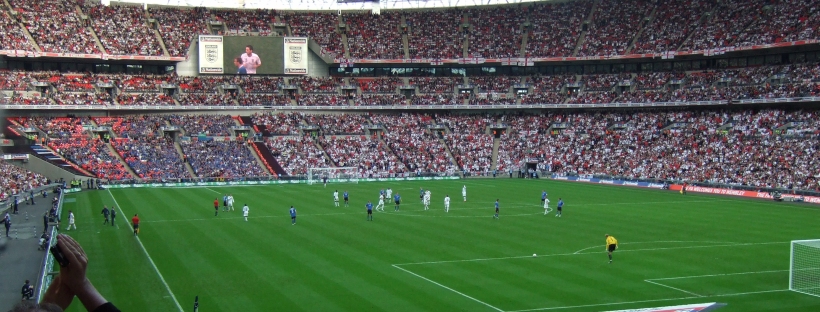 So here we are again; another major tournament, another embarrassing failure and another new face at the helm of English football. It’s an all too familiar pattern.
So here we are again; another major tournament, another embarrassing failure and another new face at the helm of English football. It’s an all too familiar pattern.
The England national job has become something of a poisoned chalice since Bobby Moore lifted the World Cup way back in 1966. Many have tried to repeat that feat and all have failed.
The latest man to take up the challenge is Sam Allardyce, and whilst he may not be the modern day Alf Ramsey, he is someone who might – just might – at least restore a modicum of respectability following the shambles of the Euros.
Allardyce might not be the most glamorous choice, nor was he a particularly overwhelming candidate for the role, but out of all the options, he’s perhaps the best fit.
The reason is simple: Allardyce’s managerial style is more suited to the unusual demands of international football than most.
Eddie Howe, Brendan Rogers or even Arsene Wenger were among those talked about following Roy Hodgson’s sacking, but the problem with any of those is that they are crafters and architects with philosophies that bear more fruit over an extended period of time.
They work from a blank canvas and gradually put the building blocks in place piece by piece, training session by training session, week after week, day after day. And this is the issue: international football doesn’t facilitate for such a manager.
At international level, managers aren’t afforded the time to work on the training ground to instil a culture or revolutionise a progressive way of playing, neither can they go out and sign whoever they like to fit their philosophy.
Instead, the manager’s impact needs to be immediate and one which can be drilled straight into the minds of players without the need for hour after hour on the training field, and that makes the need for strong man management and clear communication skills all the more pressing.
You need to have an easy to understand and effective plan which can be communicated simply so that when players leave their clubs to join up with their country, they can easily interpret what is being required of them and switch from club mode to national mode.
You can’t be introducing them to a brand new, complex system or style of play because there’s not the time to adjust. It’s all about simplicity.
It’s not just that either, what also must be factored into the discussion is the direction in which international football has evolved over the past decade or so, with the most recent major championships in mind.
Increasingly, the more successful teams in international football are well-drilled, well-organised and tactically astute. Just take a look at Portugal, Italy or even Iceland; three sides who performed well beyond expectations at the Euros because they had a plan, they made themselves hard to beat and opposing sides didn’t have the guile or quality to break them down. The Euros was far from a spectacle because of that reason.
It’s been widely-accepted that the dull nature of the competition was linked to the new format where 16 teams qualified from the groups, including the four best third-placed sides.
But, more pertinently, another reason was the lack of high-class, forward-thinking coaches. The lure of club football, both financially and otherwise, has meant that very few of the world’s best managers work in the international game.
Antonio Conte showed the value of having a world-class manager. Italy were considered no-hopers going into the tournament on the basis of their unspectacular squad, but they stormed their group, eased past Spain and only lost to a very good German side on penalties.
A significant part of that is, unquestionably, down to having a tactically shrewd manager who could deconstruct an opposition’s game plan. He was arguably the best coach at the Euros, but even Conte has now been swayed by club football.
Less gifted managers means less attacking flair, less creativity and less goals regardless of the talent at your disposal, so therefore more emphasis must be placed on being solid and hard to break down.
When you think of his past teams and the success he’s had, Allardyce fits that bill.
Sure, the style might not be the most pleasing on the eye but when have England ever played free-flowing, attractive football? And who cares how they play if it’s successful?
Allardyce has also often been noted for his ability to analyse and dissect an opposition’s game plan, something which is arguably of more value at international level due to the lack of time spent on the training pitch compared to at club level.
And then there’s the mental side. Too often England teams have frozen on the big stage, almost as if their brains malfunction under the scrutiny and pressure of performing for their country on the grandest stage.
Allardyce surely would not tolerate mentally weak players, he’d be his own man and one not afraid to make big, controversial decisions.
Roy Hodsgon, as nice a guy he may be, towed the line too often and made too many bewildering decisions, such as insisting on playing Wayne Rooney irrespective of the circumstances, or playing players out of position, or not being bold enough to bring Marcus Rashford on when England were crying out for some flair to unlock the Icelandic defence.
There was too much indecision when England needed a ruthless pragmatist who would not be afraid of making big decisions at big moments. If anyone is going to be brave enough to be his own man and do it his way, surely Allardyce is your man.
England have tried the conventional route, they’ve tried the foreign route. Now it’s time to swallow our pride, forget our image and opt for pragmatism. Big Sam is the man.

Well presented -well argued. Agree wholeheartedly with your blog. Let’s hope Sam can do it for us!
LikeLike
I agree with everything you say. People have said why choose him when he hasn’t managed a “big” club? Well, England managers that have had this experience haven’t had much success with England have they? I really like your post with some very good points raised.
LikeLike